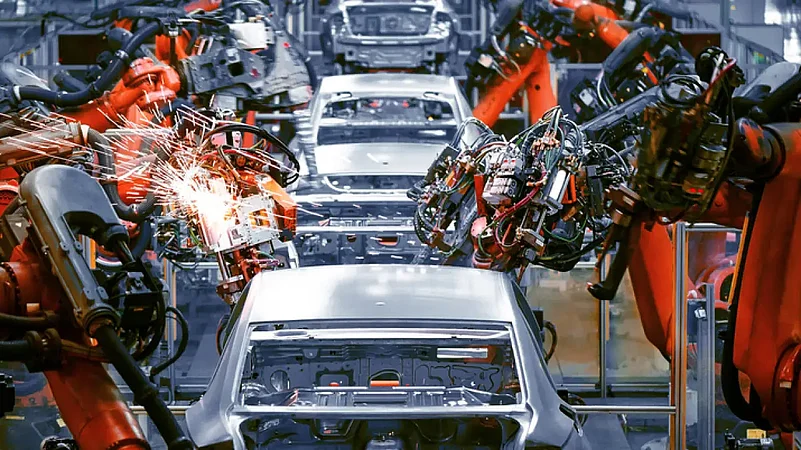The butterfly effect of US House Speaker Nancy Pelosi’s recent visit to Taiwan might soon be felt by automakers in India as it has triggered worries about yet another semiconductor paucity in the making.
It was only recently that the auto sector had started to post some growth figures after years of being battered by the economic slowdown, Covid-19 outbreak and acute semiconductor or chip shortage that hit the world last year. The Russia-Ukraine war this year only worsened the supply chain woes.
Just when growth was being fuelled by building demand and chip shortage seemingly nearing its tail end, Pelosi’s visit to Taiwan, a global leader of the semiconductor industry, seems to have stoked fears of a fresh semiconductor crisis. While these fears are new, the triggers date back a few decades and are seeped in geopolitical tensions.
Flaring Tensions
At the heart of the current trepidation is the long-standing tussle between Taiwan and China. While China has always claimed the island as part of its territory under the “One China” policy, Taiwan has a self-governing democracy and has been fighting to be recognised as a country for years.
Pelosi's visit to Taiwan has not gone down well with China as it views visits by foreign government officials as them recognising the island's sovereignty. The historical volatility in the US-China ties made it worse.
A day before the visit by Pelosi, the most senior US politician to visit Taiwan in the last 25 years, China had warned the US that it would "pay the price for undermining China's sovereign security interests" if Pelosi visited the island during her current Asia trip.
The US House Speaker’s eventual visit has left China fuming which resulted in the communist country suspending some trade with Taiwan and restrictions being imposed on Taiwanese citrus fruits and fish along with export of sand to the island.
Further, the Chinese People's Liberation Army (PLA) also announced that it would hold unprecedented live-fire military drills in the waters around Taiwan, scheduled to end on Sunday. True to its word, today, the country launched live-fire military drills in six areas around Taiwan, fuelling tensions between the two.
The Chip Conundrum
Any action against Taiwan has the possibility of resulting in a global crisis affecting supply chains. Taiwan dominates the global manufacturing of semiconductor, a component used in everything—from cars, smartphones and medical devices to bank ATMs, refrigerators, washing machines, etc.
Interestingly, during her Taiwan trip, Pelosi met Mark Liu, chairman of Taiwan Semiconductor Manufacturing Company (TSMC), the world’s biggest semiconductor manufacturer.
Taiwan accounts for 64 per cent of global semiconductor manufacturing revenue, according to TrendForce with TSMC alone taking up more than half of the total pie. After years of demand, semiconductors now make up nearly 40 per cent of Taiwan’s exports and about 15 per cent of gross domestic product.
Today, Taiwan and Korea control the largest share of chip production in the world. Even nemesis China, the world’s second-largest economy, is dependent on Taiwan for its vast semiconductor needs due to its limited manufacturing capacity.
Many fear that the escalating tensions between China and Taiwan could cause a ripple effect across the world with supply of semiconductors being disrupted, impacting production across sectors.
Jittery Auto Sector
The auto sector was among the most affected due to the chip shortage last year.
In 2020, the demand for chips had declined as orders for new cars had dipped owing to the pandemic. When there was a demand rebound, carmakers struggled to acquire chips and manufacturing took a hit. Amid this, factory shutdowns and social distancing measures during the second wave of the pandemic made matters worse. The result? Maruti, India’s largest carmaker, could sell just 1,09,722 cars in November 2021.
This year, however, Indian automakers saw sales picking up pace with improving semiconductor supplies. The auto sector reported a total sale of 3,24,650 units in July 2022 as against 2,81,576 units during the same period last year.
Last Wednesday, Tata Motors Group chief financial officer, PB Balaji, had even said that the semiconductor shortage issue was easing and that he expected it to improve further with every passing month.
That seems uncertain now. With potential risks of Taiwan-China tussle escalating, the threat of semiconductor shortage is once again looming, the Federation of Automobile Dealers Associations of India said on Thursday.
Talking to news agency IANS, Vinkesh Gulati, the association's president, said that after the Russia-Ukraine war, the world is now facing the possibility of the Taiwan-China war.
"Due to this, the threat of semiconductor shortage is once again looming as chip-maker TSMC raises a red flag that if war hits, Taiwanese chip manufacturers would be rendered 'non- operable'," Gulati said.
A new global semiconductor shortage could further derail the auto sector from its growth path and force it to prepare for another crisis.































